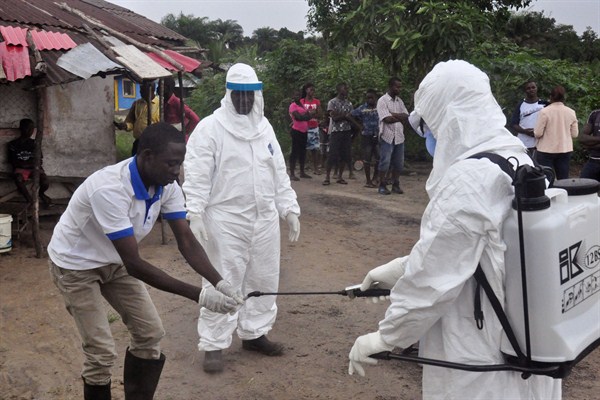On Tuesday an independent panel of experts released a scathing report criticizing the World Health Organization’s (WHO) response to the Ebola epidemic in West Africa. The panel, led by the former head of Oxfam, Dame Barbara Stocking, said that politics and bureaucracy were to blame for the WHO’s mismanaged response and called for the WHO to create a new division to coordinate emergency responses.
The report comes days after Liberia, which was previously believed to be Ebola-free, confirmed two new cases of the disease, prompting fears of a resurgence.
While often harsh, the panel’s findings are unsurprising. As Jeremy Youde wrote in World Politics Review last February, the WHO’s response has been questioned since the beginning of the outbreak in early 2014:
Keep reading for free
Already a subscriber? Log in here .
Get instant access to the rest of this article by creating a free account below. You'll also get access to two articles of your choice each month and our free newsletter:
Subscribe for an All-Access subscription to World Politics Review
- Immediate and instant access to the full searchable library of tens of thousands of articles.
- Daily articles with original analysis, written by leading topic experts, delivered to you every weekday.
- The Daily Review email, with our take on the day’s most important news, the latest WPR analysis, what’s on our radar, and more.

